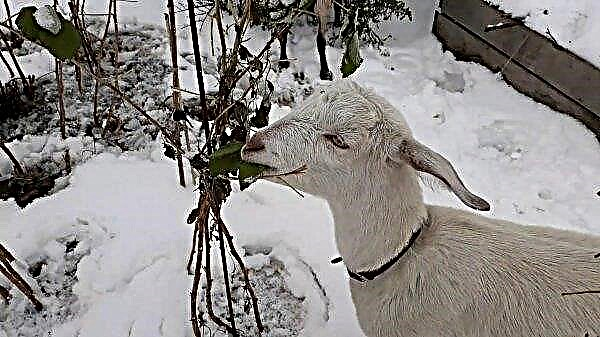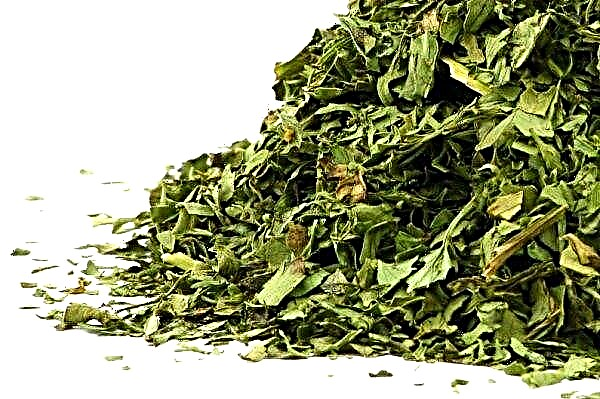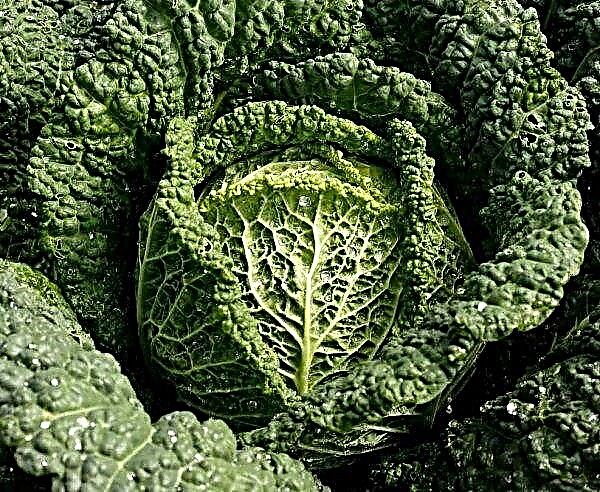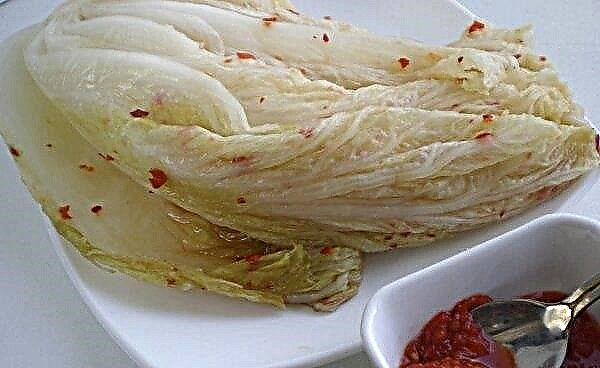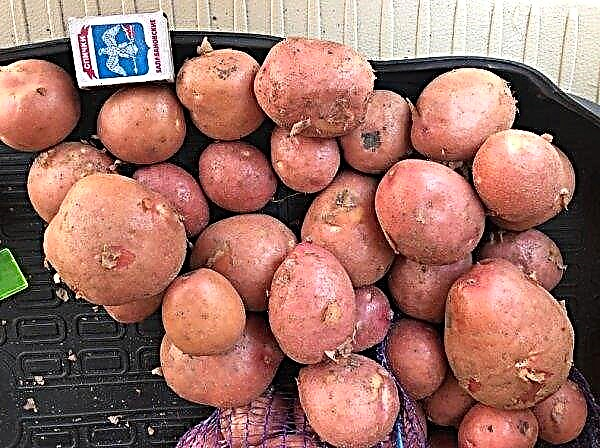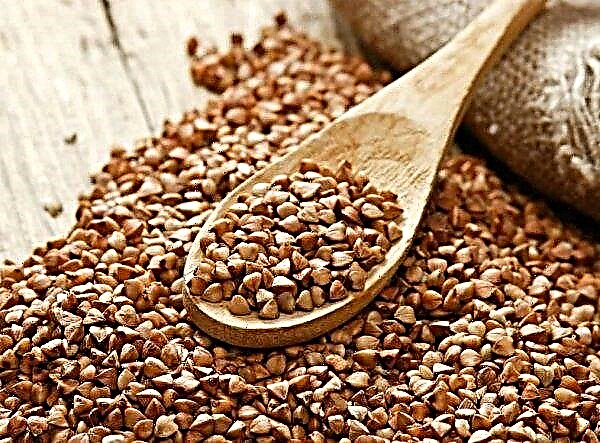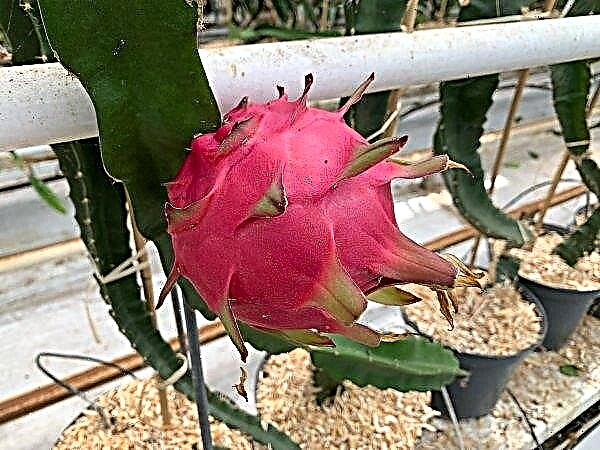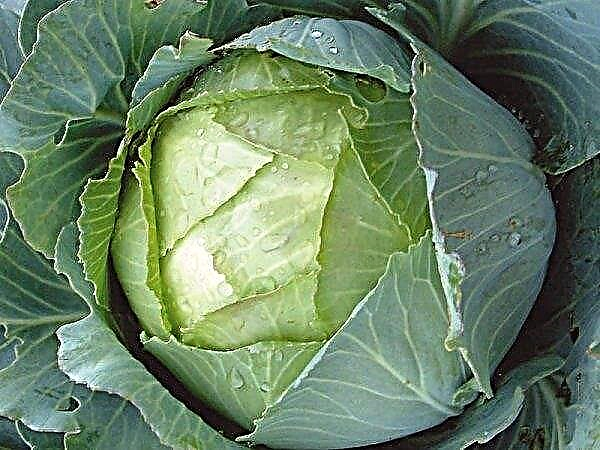Since ancient times, there are many spices and spices that were used not only in the preparation of various dishes, but also used in the treatment of various diseases. We will talk about one of these plants and tea from it in this article.
What is anise
Anise or anise is an annual spicy plant belonging to the Umbrella family and possessing the following characteristics:
- rounded grooved stems (up to 50 cm) end with inflorescences in the form of complex umbrellas of white or light pink color. Flowering occurs in June-July;
- fruits with spicy and medicinal qualities, have a strong aroma and sweet-spicy taste. This is a two-seeded fruit, slightly compressed laterally, gray with a green or brown tint and a length of up to 3-5 mm. Ripening occurs in August;
- thin rod root;
- the leaves are long-rooted, basal, middle and upper leaves are pinnate or lobed.
Did you know? With the help of anise, you can get rid of cockroaches, moths, bugs and lice that do not like its smell. But he really likes the fish, adding aniseed seeds to bait significantly increases the chances of a good catch.
Spice is used in baking bread, in the meat and fish industry, in the manufacture of beverages, medicine, and it is also a good honey plant.

The chemical composition of anise
The most useful part of a plant is its seeds.
Their composition includes:
- from 2 to 6% of essential oils;
- up to 28% fatty oils;
- about 18% protein;
- 3% carbohydrates;
- ascorbic, anisic, coffee, folic and other organic acids;
- mineral substances (Ca, Mg, Na, etc.);
- aniseed aldehyde, fiber, sugar and other useful substances.
Useful properties of anise
- Aniseed seeds have many "pluses":
- relieve inflammatory processes;
- have an antiseptic, anesthetic and wound healing effect;
- enhance the functioning of the bronchi and lungs;
- increase the activity of the digestive tract and improve appetite;
- have a diaphoretic and antipyretic effect;
- used as an antidepressant and sedative;
- relieve headaches and insomnia;
- help with colic, bloating and constipation;
- eliminate gynecological problems (normalize the cycle and treat erosion);
- enhance lactation;
- normalize potency;
- refresh your breath.
It is believed that if you drink a cup of anise tea in the morning, then your thoughts will become clear and the whole body will work in harmony. And tea in the evening will ensure a good night's sleep. Prolonged use of such a drink will relieve gloomy thoughts, a bad mood and a breakdown. Anis is even considered an elixir of youth.

Features of the use of anise in traditional medicine
Spice fruits are part of oils, tinctures, teas, elixirs and a drop. But at home, various teas are most often prepared and used in treatment. Especially often, anise tea treat colds and bronchopulmonary diseases.
Important! When choosing aniseed seeds, you need to pay attention to their color and smell. Fresh and high-quality fruits are light and have a strong aroma. Darkened seeds are either overripe or stored for a long time, and it is better not to use them.
Cough Anise Decoction
Preparation of aniseed broth:
- 1 tsp seed pour a glass of water.
- Boil over low heat for about 15 minutes.
- Insist until cool.
- Strain and mix with 1 tbsp. honey.
- Take 1/4 tbsp. 4 times a day.
The product is effective for dry, prolonged cough. Adults can add 1 tbsp. Of broth to enhance the effect. cognac.

The broth is also effective in the treatment of swelling, abdominal pain, with painful menstruation, and an improvement in appetite. For children, the drug is diluted 2.5 times with water. Diluted in half with water, it is used in the form of rinses for fresh breath and for problems with the oral cavity.
The broth can also be prepared in a water bath:
- 1 tsp spice seeds pour 200 ml of boiling water.
- Cover and place in a pot of boiling water.
- Boil for 15 minutes.
- Insist for about an hour.
- Strain and add boiled water to the initial volume.
- Infusion is used in 1/4 cup 20 minutes before meals 4 times a day.
Did you know? Residents of Rome used anise cakes after heavy feasts as Mezim. This tool helped get rid of the effects of overeating. In those days, anise was very much appreciated and was not cheap, so only very wealthy people could buy it.
Medicinal Expectorant Collection
Anise seeds can be brewed separately or as part of various collections:
- take 5 g of sage, pine buds and licorice root, add 10 g of anise seeds. 1 tbsp. pour the mixture with 1 cup boiling water. Insist in a thermos before cooling and take 50 ml 3 times a day before meals;
- mix violet root and leaves of coltsfoot (1 tsp each) with 1 tbsp. anise. collection pour boiling water (1 cup) and insist until cool. Take in the same way as the previous remedy;
- mix 1 hour of licorice and marshmallow roots, aniseed seeds and leaves of coltsfoot. A tablespoon of the composition pour 1 tbsp. boiling water and insist for about an hour. Strain the infusion and take 0.5 cups three times a day before meals. You can add 1 teaspoon of honey to the product.

Anise fruit infusion
Spice tea (or fees with it) in the form of infusions are used not only for coughs and colds, but also in such cases:
- for diseases of the stomach, bloating or diarrhea, 1 hour of crushed anise seeds is poured with a glass of boiling water. After 30 minutes of infusion, the tea is filtered. Drink 3-4 cups a day to get a therapeutic effect;
- as a gastric and antitussive agent, a mixture of anise, caraway seeds and fennel fruits (taken in equal proportions) is used. The method of preparation and use is the same as the previous one;
- vitamin tea can be prepared from 0.5 parts of aniseed seeds, cinnamon sticks, 1 part of lemon or lime peel and 1 cm of ginger root. All components are poured into 0.5 liters of boiling water and insisted for about 30 minutes. Drink a glass twice a day before meals.
Important! The aniseed thigh should not be confused with star anise (star anise), whose seed photos on the Internet are often passed off as anise fruits. Anise star seeds in the form of beautiful stars, while anise oblong and resemble caraway seeds.
Possible harm and contraindications
- Like every remedy, anise has contraindications:
- can not be used for children under the age of three;
- do not use during pregnancy;
- prohibited with individual intolerance and allergic reactions;
- do not use for stomach ulcers and increased blood coagulation.
We hope that the story about anise tea was useful to you. Having learned about its medicinal properties, use it and be healthy.

